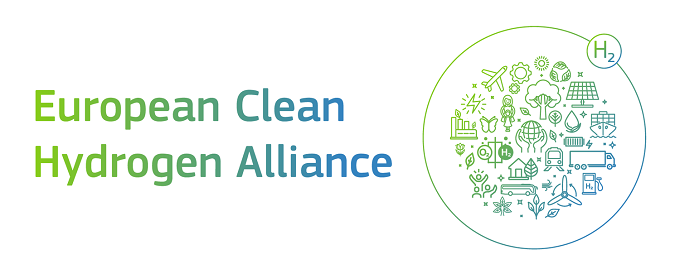Research and innovation will play an important role in the European Commission’s plans for an economically and ecologically sustainable hydrogen production.
On 08 July, the European Commission (EC) adopted its Hydrogen Strategy for a climate-neutral Europe. The strategy outlines a roadmap with key actions towards a gigawatt-scale renewable hydrogen production. Its goal is to contribute to the EU’s European Green Deal priority that aims to make Europe the first carbon neutral continent by 2050.The Strategy describes what is needed to turn hydrogen into a sustainable energy carrier: A critical mass in investments, an enabling regulatory framework, a large-scale infrastructure network, sustained research and innovation (R&I) into breakthrough technologies and for bringing new solutions to the market, and international cooperation, among others. The EC’s impetus for clean hydrogen is matched by the programme of the German Presidency of the Council of the EU, which also foresees a focus on hydrogenderived from renewable energies. The programme proposes a launch of initiatives on green hydrogen as part of the further development of the European Research Area (ERA).
An important focus of the EC’s hydrogen strategy is to develop efficient and cost-effective electrolysers in the range of gigawatts to supply hydrogen to large consumers, such as steel manufacturers, airports and ports. As a first step, a call for proposals for a 100 MW electrolyser will be launched in 2020. Another focus of the strategy is to invest into different technologies for hydrogen production by incentivising and developing solutions at lower technology readiness level. Examples are hydrogen production from marine algae, from direct solar-powered water splitting, or from pyrolysis processes. Also, the repurposing of existing gas infrastructure for transporting hydrogen or hydrogen-based fuels needs further R&I efforts.
R&I will be key drivers for the hydrogen strategy: The institutionalized Clean Hydrogen Partnership proposed under Horizon Europe is set to receive an increased budget, compared to the current Horizon 2020 Fuel Cell and Hydrogen Joint Undertaking public-private partnership, to which the EU contributed already around EUR 900 million over the past decade. The new Partnership will cover efforts in renewable hydrogen production, storage, distribution and fuel cell end-use technologies, including demonstrations of technologies to bring them to market readiness.
The Strategy mentions that the cooperation with R&I efforts of Member States in the context of the Strategic Energy Technologies (SET) Plan priorities will be ensured. Similarly, synergies with other funding instruments will be sought: Structural Funds and the Innovation Fund could support first-of-a-kind demonstration projects for renewable and low-carbon hydrogen production across the EU. A first call for proposals under the Innovation Fund was launched on 3 July 2020. Some actions in R&I will still be taken under Horizon 2020’s upcoming European Green Deal Call.The EC also plans to make the hydrogen strategy an important element of its recovery plan. Thus, the strategy will be supported through the Next Generation EU recovery instrument. Furthermore, synergies between the Connecting Europe Facilities Energy and Transport shall be used to fund hydrogen infrastructure. In addition, the EC plans to roll out a dedicated Interregional Innovation Investment Instrument in the next funding period, with a pilot action on hydrogen technologies in carbon-intensive regions, thus supporting the development of innovative value chains.
08 July saw also the launch of the European Clean Hydrogen Alliance, which includes public authorities, industry and civil society. The Clean Hydrogen Alliance’s goal is to pool resources to bring scale and impact to industrialisation efforts, in order to achieve further cost reductions and improved competitiveness. The Alliance will work out an investment agenda and concrete projects until the end of 2020. The Hydrogen Alliance is open to all public and private actors with activities for renewable or low-carbon hydrogen who are interested to contribute to its objectives.
The EC Hydrogen Strategy recalls the importance of international cooperation on hydrogen R&I, such as the collaboration with the US and Japan and via the International Partnership for a Hydrogen Economy (IPHE). In addition, the EC also sees important opportunities for international collaboration in its vicinity when it comes to the actual production of renewable hydrogen, calling for the active promotion of collaboration with North African and Eastern European countries. “Cooperation should range from research and innovation to regulatory policy, direct investments and undistorted and fair trade in hydrogen, its derivatives, and the associated technologies and services.” The EC refers to industry estimates that 40 GW of electrolysers could be potentially installed in the Eastern and Southern Neighbourhood of the EU already by 2030.

